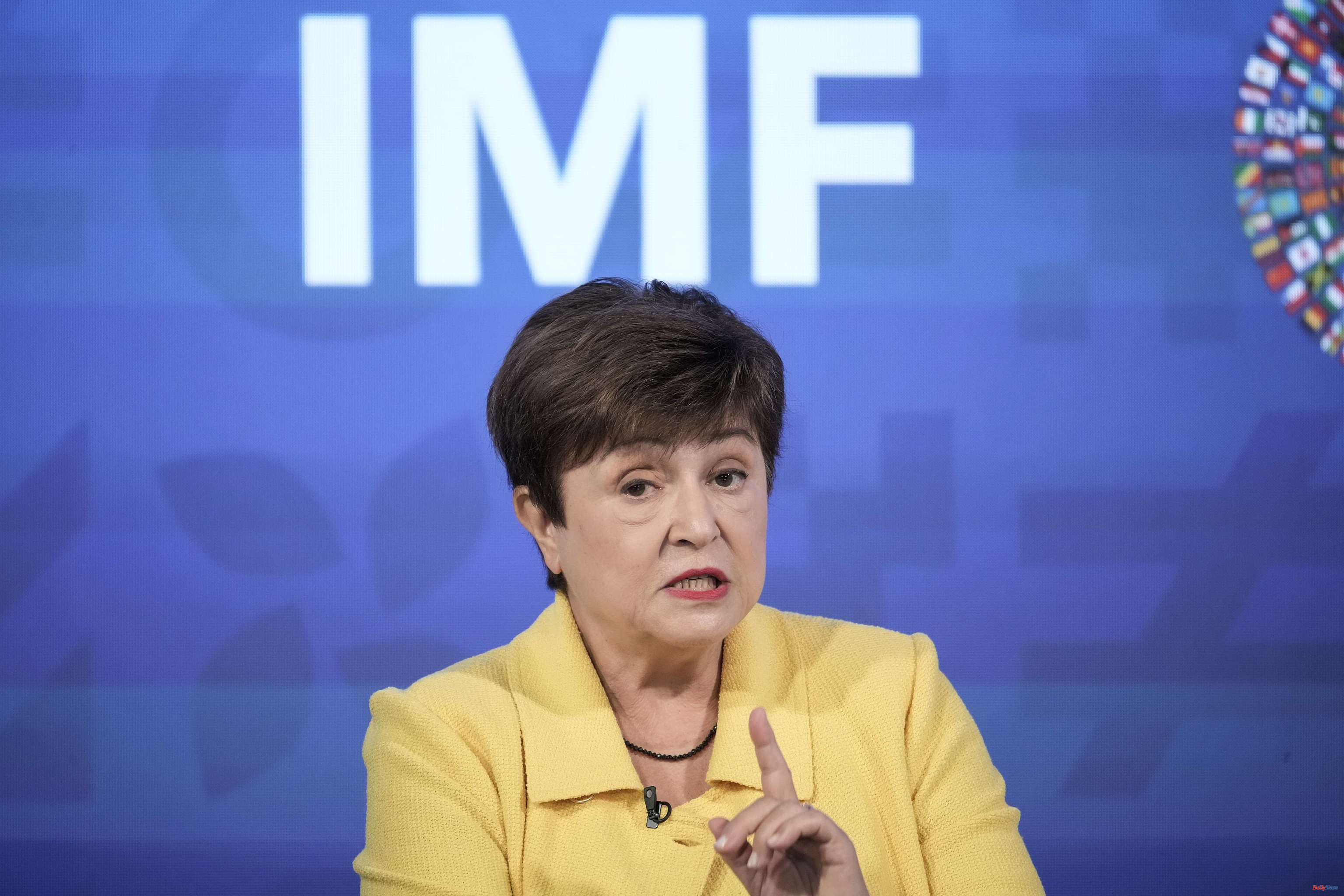Has the risk of inflation becoming entrenched in the economy passed? What about a recession? The International Monetary Fund seems to think so. In the usual January review of its World Economic Outlook report, the institution led by Kristalina Georgieva raises its growth forecast for 2023 -for the first time in a year- and considers that inflation has peaked. The political risks derived from the Russian invasion of the Ukraine persist, as does the danger of accelerating inflation again, and, more in the long term, the fragmentation of globalization. But growth for this year will be 2.9%, two tenths more than expected in October, and in 2024 it will accelerate to 3.1%.
The keys seem to be two. One, the fall in the price of oil. The other, the reopening of the Chinese economy decided in November by the Government of that country. The result, according to the institution's chief economist, Pierre-Olivier Gourinchas, is that we now have "less gloomy prospects" than those of last October, both due to slightly higher growth and to what he described as "improvement" in inflation expectations worldwide, partly because of what he described as "encouraging news" regarding price controls. In other words, "it could be a turning point, with growth bottoming out and inflation declining."
The great engines of global recovery will be India and China, which will contribute no less than half of global GDP growth, while the United States and the European Union will barely add 10%. The change in expectations in China is especially great if one takes into account that, despite the fact that, despite the fact that it is barely two months since the Beijing government lifted the Covid-19 restrictions, the IMF raises its growth forecast for that country by eight tenths in 2023.
The black sheep is, without a doubt, Great Britain. Of the 27 economies and groups of economies analyzed by the fund, it is the only one that registers a drop in GDP in 2023. It is doing worse than Russia, which avoids the fall in negative growth by a hair's breadth – it remains at 0.3% -, and it owes it to a spectacular cut in forecasts, which has led the IMF to lower the GDP forecast by no less than nine tenths in three months.
Apart from the British shaving and the Chinese push, the improvement for Italy stands out, of 8 points, which allows it to have positive growth, and that of Germany, of 4, which also makes it easier for it to escape the fall in GDP in 2023. These revisions they are an indication that the impact of the Russian invasion of Ukraine is being less than feared in October. Eastern Europe sees its forecasts increased by nine tenths. And Russia itself will escape the fall in GDP in 2023, with minimal expansion, thanks to improved forecasts of 2.6 points.
Reviews for the other countries are very limited. Latin America remains totally stuck in the middle income trap; The United States, with an upward revision of four tenths, seems to definitively leave the ghost of recession behind, although its growth will fall again. For Spain, the changes are minimal. But not necessarily positive. The Fund estimates that growth in 2022 was 5.5% -in reality, three tenths less than that announced last week by the National Institute of Statistics- and confirms the slowdown in 2023, leaving GDP at 1.1 %, one tenth below the October forecast. For 2024, it cuts its October forecast again, leaving GDP growth at 2.4%.
According to the criteria of The Trust Project












